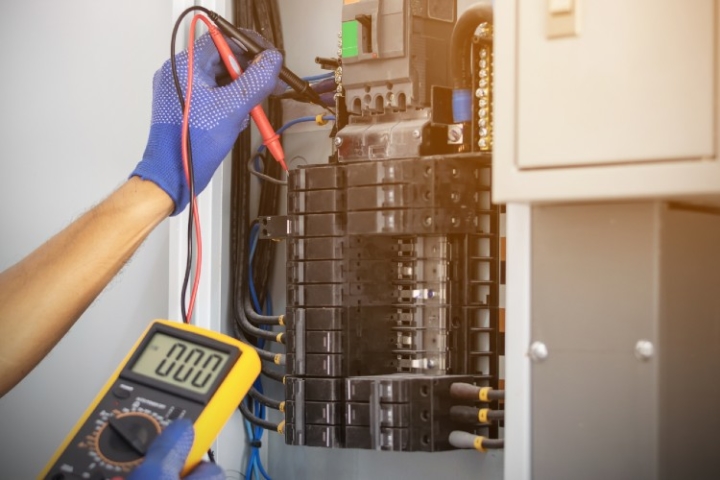5 Risks You Need to Know Before a House Auction house auctions are a thrilling spectacle. Fast-paced bidding, hammer strikes, and the promise of property ownership within minutes. But beneath the surface of this dramatic process lies a set of hidden challenges that every potential buyer must grasp. While auctions can indeed offer exceptional deals, they’re not without their share of caveats.
Before raising your paddle or placing that online bid, it’s vital to understand the house auction risks that could impact your finances, your peace of mind, and even your legal standing. Let’s delve into the five most critical risks that savvy buyers must consider before diving headfirst into the auction arena.

1. The “As-Is” Nature of Auction Properties
Arguably the most significant of all house auction risks is the “as-is, where-is” clause. This means what you see (or don’t see) is exactly what you get—no frills, no fixes, and certainly no apologies.
No Inspections? No Problem? Think Again
In traditional home buying, inspections are your safety net. You can renegotiate or walk away entirely if issues are uncovered. But at most auctions, inspections are either not allowed or not possible due to time constraints, tenant occupancy, or property condition. That roof with potential water damage? Yours to repair. The plumbing system that may or may not be up to code? Also yours.
Imagine buying a home only to discover black mold behind the walls, termites in the foundation, or faulty wiring that needs a complete overhaul. These hidden pitfalls can cost tens of thousands of dollars—and worse, may render the property unlivable or unsellable for a time.
Takeaway: You must budget for potential surprises. A contingency fund isn’t a luxury—it’s a necessity.
2. Title Troubles and Legal Liabilities
When it comes to house auction risks, legal encumbrances are high on the list. Unlike a traditional purchase, auction properties might come with a variety of title issues that aren’t resolved prior to sale. These can include:
- Unpaid taxes or liens
- Outstanding utility bills
- Illegal additions or zoning violations
- Clouded titles or ownership disputes
The Red Tape You Can’t Ignore
Sometimes, you could end up purchasing a property only to discover that it’s legally tied up in a probate dispute, or worse—was sold by someone who didn’t have clear authority. In some extreme cases, ownership can be challenged in court even after you’ve paid in full.
Title insurance might not even be an option in some auction sales, especially if you’re purchasing through a foreclosure or sheriff’s sale. That leaves you fully exposed to the legal mess you’ve inherited.
Takeaway: Always perform a title search before bidding. If you’re not confident reading legal documents, hire a real estate attorney to help you spot red flags.
3. Financial Pressures and No Room for Second Thoughts
Traditional home purchases offer breathing room—financing contingencies, closing periods, the ability to negotiate. Auctions offer none of that. The financial expectations are as rigid as they are immediate.
Deposit Now, Questions Later
In most house auction risks scenarios, a winning bid requires an immediate, nonrefundable deposit—usually between 5% to 10% of the purchase price. If you can’t close the deal within the specified timeline (often 30 days or less), you’ll forfeit that deposit and possibly face legal action.
Worse still, if you were planning on mortgage financing and your bank pulls the plug due to an appraisal issue or underwriting hiccup, you still remain on the hook. Auction houses are notoriously unforgiving when it comes to buyer backing out.
Takeaway: Have your financing ready before you bid. Cash is king in the auction world, but if you’re using a loan, secure pre-approval and ensure the lender is comfortable with auction properties.
4. Competitive Bidding and Emotional Overreach
Auctions bring out the competitor in everyone. And while a little adrenaline can be fun, emotional bidding is one of the most underestimated house auction risks out there.
The Trap of Auction Fever
You set a budget. You do your research. You’re ready. But then the bids start flying, and before you know it, your hand’s in the air again—and again. Auction environments are designed to create urgency and competition. The auctioneer’s rapid cadence, the countdown clocks, the roar of the crowd (or clicks of an online auction)—it’s all intended to drive your emotions, not your logic.
This can lead to overbidding, resulting in you paying more than the property’s actual value. That “great deal” quickly becomes a costly lesson in self-restraint.
The Illusion of Winning
It’s important to remember: winning the auction doesn’t mean you’ve won a deal. It simply means you’ve committed to a price. If that price overshoots the market value, you could be sitting on a bad investment.
Takeaway: Set a hard bidding limit and walk away if it’s surpassed. A smart investor knows when not to bid.
5. Occupancy and Eviction Woes
You might assume that once you win the auction, the home is yours to enjoy. But that’s not always the case. One of the sneakier house auction risks is what comes after the gavel drops—dealing with existing occupants.
The Unwelcome Surprise
In many auction cases, especially foreclosures, the property may still be occupied by the previous owner, tenants, or even squatters. While the deed may now bear your name, getting the keys could involve costly and time-consuming eviction proceedings.
Laws around evictions vary greatly by state and locality. Some areas have strong tenant protections that can delay possession for months. Others may require court proceedings that add legal expenses to your already-growing list.
And let’s not forget the possibility of intentional property damage by disgruntled occupants leaving the home. From broken windows to stripped copper wiring, it’s a bitter pill to swallow after shelling out a sizable chunk of change.
Takeaway: Always factor in the potential cost and delay of evicting occupants. Legal consultation is advised if you suspect the property is not vacant.
Bonus Risk: Hidden Costs That Add Up Fast
Let’s not stop at five. There’s another insidious category of house auction risks worth mentioning: all the extra costs that aren’t advertised front and center.
Buyer Premiums
Many auction houses charge a buyer’s premium—an additional fee (often 5% to 10%) added on top of your winning bid. That $300,000 property just became $330,000.
Legal and Transfer Fees
In addition to closing costs, title registration, and legal fees, you might encounter:
- Auctioneer service charges
- Documentary stamp taxes
- Court or municipal recording fees
- Utility reconnection deposits
None of these costs are glamorous, but they are real and very much your responsibility.
Takeaway: Don’t assume the final bid price is your final cost. Always read the terms and conditions, and budget accordingly.
Smart Strategies to Mitigate House Auction Risks
Understanding house auction risks is the first step. Here’s how to shield yourself from the most dangerous pitfalls:
1. Research the Property Thoroughly
Even if you can’t inspect it, study the neighborhood, comparable sales, tax records, and public notices.
2. Review the Auction Terms in Detail
Auction catalogs and websites will provide fine print that’s easy to overlook—but doing so can be costly.
3. Work with a Real Estate Attorney
Having a legal advisor familiar with auctions can save you from a mountain of stress and litigation.
4. Verify Title and Liens
Order a preliminary title report or consult a title company. Know exactly what debts or claims are attached to the property.
5. Be Financially Ready
Whether it’s cash or pre-approved financing, make sure you can meet all payment deadlines and requirements.
6. Plan for Worst-Case Scenarios
Set aside funds for repairs, legal fees, evictions, or short-term vacancies. Hope for the best—prepare for the worst.
Who Should Avoid House Auctions?
House auction risks aren’t for everyone. This purchasing method may not suit:
- First-time homebuyers who need mortgage flexibility and contingencies
- Risk-averse individuals who want turnkey properties
- Buyers without liquid capital or fast financing options
- Anyone unwilling to accept the possibility of loss
If this sounds like you, a traditional real estate transaction may provide a smoother and more secure route.
Final Thoughts
House auction risks are real, and they’re not to be underestimated. From legal tangles and hidden structural flaws to financial burdens and emotional missteps, the path to owning a home through auction is lined with potential pitfalls.
But for the well-prepared, educated, and cautious buyer, the rewards can be just as great. Arm yourself with knowledge. Set firm boundaries. And treat every auction like a business transaction—not a casino bet.
Because in the end, success at auction isn’t about the thrill of the bid—it’s about walking away with a solid property, a strong investment, and no regrets.





More Stories
How to Get Binghamton housing repair grants in 2025
Real Estate Auctions 101: Everything You Need to Know
Property For Sale In Nicosia Makes A Good Investment